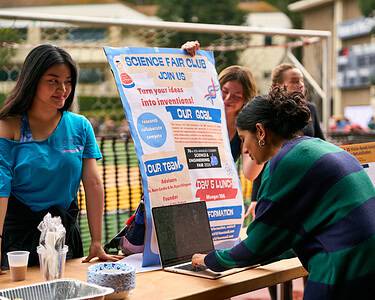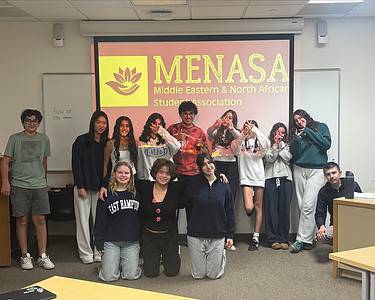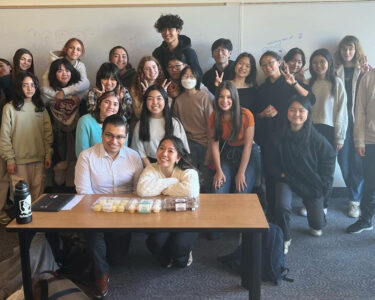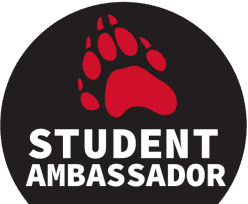By Sarah ’22
Stepping into the classroom as an anxious tenth grader and waiting for my Mock Trial tryout to begin, I had no idea what to expect. Not only were most of the participants upperclassmen, but I was also completely new to both the campus and the club. At the beginning of my sophomore year, nothing about Coldwater Canyon felt like Harvard-Westlake to me.
My hands, which held the short cross-examination script I had prepared, trembled as I awaited my turn. But, seconds before I turned in my signup form to the captains, I did something brave. On the sheet, I had circled the role of “witness” – but at that very last moment, I also put down “attorney.”
This coin-toss decision is why, when I received the role of attorney a week later, I was stunned. All of a sudden, I knew I had made the right choice, and I couldn’t wait for the season to begin.
But my trials (no pun intended) were far from over. On my first day of after-school practice, I came to the sudden realization that all of the other attorneys were seniors who had already participated in the club for years. This meant I, a sophomore who knew nothing about Mock Trial, was going to be expected to meet a much higher level of criteria than I had believed.
Mock Trial’s practices all culminate into a series of actual competitions where teams all over Los Angeles go to real courtrooms. In order to proceed with the competition, our team would have to consistently beat the opposing side, which is harder than it seems. Being an attorney meant I had a lot more responsibilities than the other roles; I had to speak directly to the judge, make objections, and interrogate witnesses, and because there were only three lawyers, I had one-third of the cross-examinations to perform.
Like most things in life, there was a learning curve. During the first few weeks, I stumbled over my words constantly, froze in front of the club, and, on more than one occasion, talked so fast that nobody could understand what I was saying. I was doing something incredibly challenging and it definitely made me nervous. But that wasn’t all; because as anxious as I felt about messing up, I still excitedly awaited the next practice.
Mock Trial was incredibly gratifying for me. It gave me a great opportunity to learn public speaking skills, meet upperclassmen, and gain some much-needed confidence. It also taught me that power only really resides in words – to really pack a punch, all I had to do was perform confidently and clearly and stump my opponent. But in the end, it was, simply put, fun. The coaches were kind and helpful to me, the judge was surprisingly friendly and warm, and the other competitors were polite. I was proud to be a part of Mock Trial and excited to share my new ideas with other members. It helped me step out of my comfort zone in a way I never would have otherwise.
Even though Mock Trial initially pushed my limits and exposed me to unfamiliar situations, I am endlessly grateful that I was given the opportunity to participate in it. Joining again this year, all I can hope is that the competitions are just as exhilarating this time around.
If you’re somebody who loves to debate, argue, or discuss, I would absolutely suggest looking into the club. People who like Model UN or other extracurriculars that involve acting out a role might really love being a witness and getting to portray a certain character. And if you’re just looking for an opportunity to try something new or get a sense of the justice system, this is a really great way to get involved.
If you have any questions about Mock Trial, feel free to contact me and I can explain the details. This year’s team has already been chosen, but it’s always good to look into extracurriculars early on!





